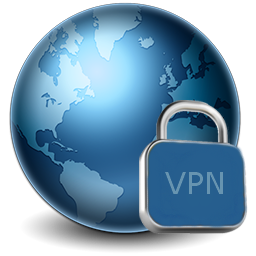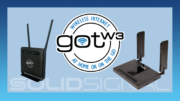Devices are becoming smarter day by day. Ten years ago we used touch-tone mobiles to get in touch with one another. Today we have smartphones that allow us to pay bills, play games, watch movies, arrange daily routine, and even control other devices.
But technology didn’t stop there. We keep on stuffing our homes with smart devices, powered by the Internet-of-Things (IoT) technology. According to Statista, there are about 10 billion active IoT devices worldwide. And their number is expected to dramatically increase by 2025.
IoT-powered gadgets make fiction movies a reality. They enable smart homes to control devices or systems at your home from any part of the globe. For instance, if you are a fan of baseball, your smart TV will record a game for you, even if you are out. Your smart TV can even switch channels automatically at a specific time so that you could watch your fave program the moment it starts.
Literally, any device that uses electricity could be connected to the Internet to provide you with more control over your home. You can start your coffee machine while you are still in bed from an application on your smartphone. Or send a signal to your garage doors when you are approaching home, thus, opening them without leaving the car by simply clicking the button on your cell phone. This holds true for security systems, cameras, a lighting control system, and many more.
Are IoT-equipped gadgets well-protected?
IoT simplifies the life of busy people in many ways. However, along with technology advancement and comfort it brings, comes more risks. Cybercriminals have more opportunities than ever to hack your device connected to the Internet.
Here are top IoT security threats users might suffer from:
- Controlled attacks (viruses)
- Tracking
- Attacks on passwords
- Malware
In order to protect IoT gadgets from unsolicited access, some of the devices come with in-built security features. But they are rarely flawless and could be easily hacked even by a novice fraudster. According to statistics, IoT devices suffer from 5,200 attacks monthly. The thing is that security is not a priority for IoT devices manufacturers and there are two basic reasons for that.
The first reason is the price. The smart device with advanced security features will cost more. And most people are not ready to cash out because they want IoT gadgets at moderate prices. So manufacturers found a compromise and reduced costs simplifying security systems.
Secondly, some IoT-based devices are small. Adding extra systems in order to increase security will make them much bigger, which is also not favored by gadget users.
In view of that, your IoT devices need smarter security technologies to safeguard your dwelling from any unauthorized intrusions.
How to protect your smart home from hackers?
Security measures you usually take to protect your smartphones and computers won’t work with IoT-equipped devices. Because robust security software frequently doesn’t work for smart gadgets with very limited capacities and interface, investing in VPN for your network is probably the only way to keep your IoT environment safe and well-protected.
Is VPN a good security measure for your IoT infrastructure?
Let us explain what VPN is. VPN stands for Virtual Private Network, which makes a secure connection between two endpoints (your IoT device and a computer that your asset connects to before transferring data to the Internet through Wi-Fi router). Because the signals are encrypted and could be decrypted only by the above-mentioned devices at each side, it adds another level of security to your smart home.
Reasons to implement a VPN for your smart home
1. Safeguard your home from unauthorized access
Did you know that your smart devices and everything you do on the Internet is interconnected? It means that if a hacker gains access over a tiny IoT-powered device like a coffee machine, they will get sensitive information like your payment data. They can even steal a car or break into your house hacking your TV set or laptop.
VPN ensures confidential information couldn’t be decrypted and tracked to your physical location.
2. Protect your right for privacy
It might surprise you, but your devices know more about you than your soulmate. They track all your habits and behavioral patterns. For instance, your TV set knows when you are at home and what type of shows you watch. Your lights system can reveal when you go to sleep and smart doors – when you leave your apartment.
If this information falls into the hands of hackers or other criminals, they might create a very accurate profile of your family and rob your dwelling when no one is home.
Using a VPN, you can rest assured that this sort of information stays secret.
3. Hide away from a Big Brother
If you have CCTV cameras inside or outside your apartment, hackers might use them to literally watch what’s going on in your house. The same goes for cameras of your smartphones, laptops, web cameras, etc. We don’t want to scare you, but there were cases when malicious users were able to compromise the baby’s camera to watch and even interact with kids.
As you pick VPN to enhance security measures, you protect data that’s being streamlined from your cameras and don’t let intruders get access to it.
4. Watch your kids remotely
Of course, trust is the basis of any relationship. But if you have doubts about whether your kids are doing their homework rather than playing computer games, or what websites they visit from their gadgets, you can track and control what users are doing from their assets.
Final words
Intelligent devices have already become a vital part of our life. But they might be vulnerable just like your smartphone or computer and could become an easy catch for hackers who would like to make use of your security ignorance.
That is why protecting your smart home with a robust VPN system is a worthy investment. Give yourself the peace of mind knowing that all the data being transferred between your gadgets is securely protected and saved from malicious users.





